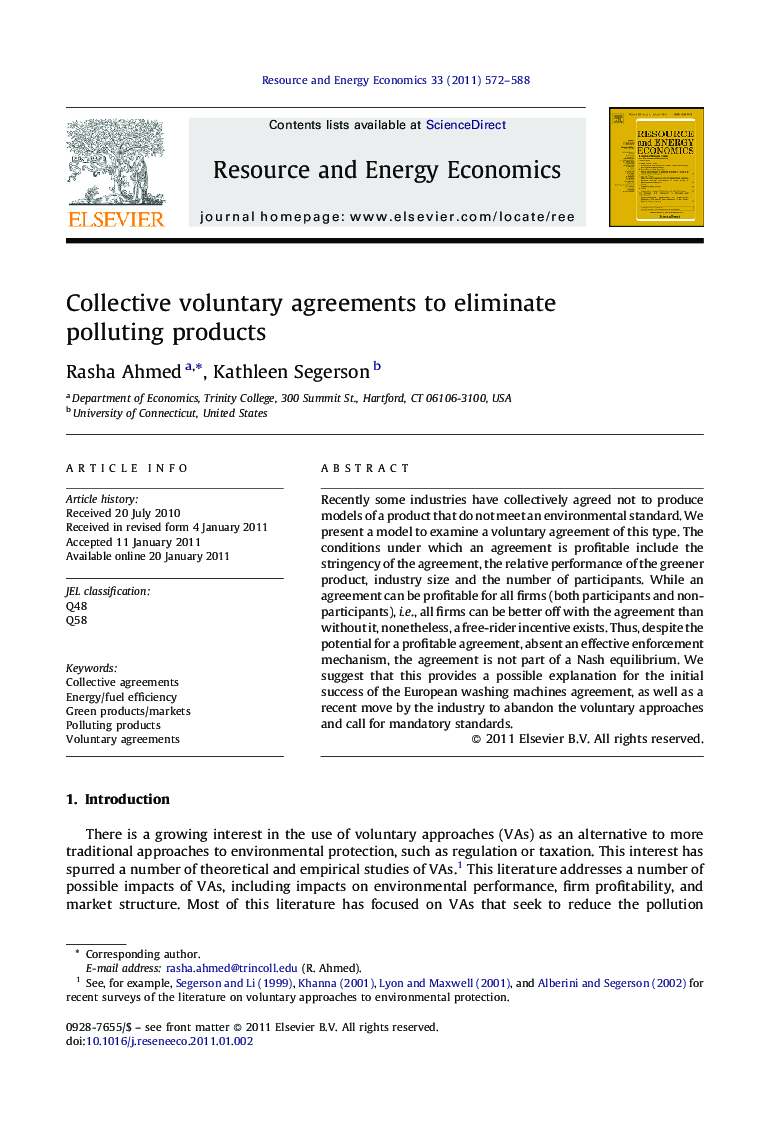| Article ID | Journal | Published Year | Pages | File Type |
|---|---|---|---|---|
| 985587 | Resource and Energy Economics | 2011 | 17 Pages |
Recently some industries have collectively agreed not to produce models of a product that do not meet an environmental standard. We present a model to examine a voluntary agreement of this type. The conditions under which an agreement is profitable include the stringency of the agreement, the relative performance of the greener product, industry size and the number of participants. While an agreement can be profitable for all firms (both participants and non-participants), i.e., all firms can be better off with the agreement than without it, nonetheless, a free-rider incentive exists. Thus, despite the potential for a profitable agreement, absent an effective enforcement mechanism, the agreement is not part of a Nash equilibrium. We suggest that this provides a possible explanation for the initial success of the European washing machines agreement, as well as a recent move by the industry to abandon the voluntary approaches and call for mandatory standards.
Research highlights► The paper analyzes incentives of firms to enter into a collective agreement to limit production of a polluting product. ► We use a vertically differentiated product market with multi product Cournot competitors. ► The results indicate that incentives to free ride exist, however, the agreement can raise firm profit if a sufficient number of firms commit.
